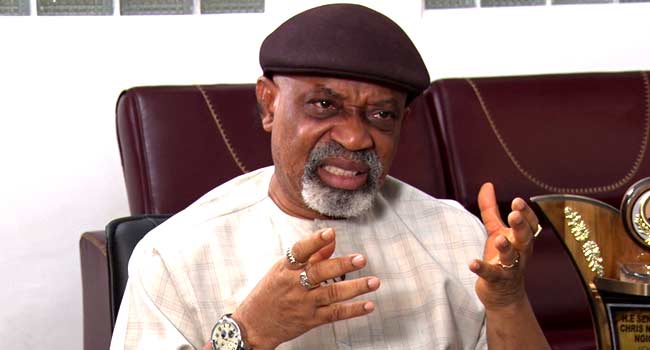The Federal Government and social partners have commenced the harmonisation and validation of reviewed labour laws of the country.
Related Articles
The Minister of Labour and Employment, Sen. Chris Ngige said this at a Tripartite Harmonisation and Validation reviewed labour laws meeting on Thursday in Abuja.
This is according to a statement signed by Mr Charles Akpan, the Deputy Director, Press and Public Relations in the ministry.
The social partners participating in tripartite harmonisation and validation meeting are the Nigeria Labour Congress (NLC), Trade Union Congress (TUC) and the Nigeria Employers Consultative Assembly (NECA),National Assembly and the International Labour Organisation (ILO).
Ngige said the reviewed labour bills would be validated at the meeting and sent to the Federal Executive Council (FEC) for approval.
Ngige said afterwards the council would direct the Attorney General of the Federation (AGF) and Minister of Justice to transmit the reviewed labour laws to the National Assembly for passage.
”The bills include the Labour Standards Bill to repeal the Labour Act, CAP L1, LFN, 2004 and the Collective Labour Relations Bill to repeal the Trade Union Act CAP T14 and T15 LFN, 2004, Trade Disputes Act, CAP T8 and T9, Trade Union Affiliation, and Trade Union Essential Services,”he said.
The minister said they were also trying to enact the Occupational Safety and Health Bill to repeal the Factories Act CAP F1 LFN, 2004 and Labour Institutions Bill to create the National Commission for Conciliation and Arbitration as well as strengthen other existing institutions.
He said the Nigeria Social Insurance Trust Fund Act, 2010 was equally being reviewed to align Employee Compensation Act (ECA) with globally acceptable workplace laws.
“The harmonization and validation underscore the Federal Government’s continuous commitment to fulfilling its obligations as a member state of ILO, and ensure best practices in labour administration and decent work for all.
“The National Labour Legislation plays a significant role in ensuring peace and harmony in the world of work.
”This by implication enhances economic growth and development, including the way the Gross Domestic Product (GDP) of the country grows to make for better social life for all,” he said.
He recalled that the ministry and its social partners had undertaken the review of the National Labour Bills in the past but it suffered some abortions.
He said the ministry took the bull by the horn after the ILO had expressed displeasure with Nigeria for not bringing labour laws up to date and in conformity with its conventions and principles at work.
“We are also trying to align our laws with all the recommendations so that we will not fall short of expectations from a country that has three membership in the Governing Board.
"We have membership as a government and even headed it for two years (2016 to 2018) and also headed workers and employers groups in the ILO Governing Board,” he said.
He said that the meeting was expected to consider the enabling Acts as they affect parastatals of the Federal Ministry of Labour and Employment.
"These include the National Directorate of Employment Act, 2004, the National Productivity Centre Act, Act 2004 and the Micheal Imuodu National Institute of Labour Studies Act,” he said.
The minister also noted that there were also three members bill initiated in the National Assembly. The bill on casualisation of workers, which seeks the end of ill treatment of Nigerian workers through yellow dog employment.
"This where major employers hide under the canopy of labour contractors to perpetrate unfair labour practices like stoppage of work, unionisation and retrenchment at will. There is also a bill for the amendment of labour law fines,”he said.
Ngige said Nigeria was poised to ratify the ILO Convention 190 on Violence and Harassment (2019), to address violence and harassment against women and men at work through standard legislation, workplace policies and initiatives on safety and wellbeing at work.
He said the convention had been moved by his ministry to the Federal cabinet secretariat and would be taken any moment from now by the Federal Executive Council (FEC).
Also, the President of NLC, Mr Ayuba Wabba and his Trade Union Congress (TUC) counterpart, Mr Quadri Olaleye said they were happy that the review of the labour laws, which dated back to 2005, was back on the driver’s seat after previous abortions.
Earlier, Mr Thompson Akpabio, NECA Deputy Director, Legal, Regulatory and Tax noted that the life span for labour laws should be 10 years but some of the laws in Nigeria had been in existence since 1971.
Akpabio said social dialogue “is very key in labour relations and appreciated the ministry for the current efforts at reviewing the labour laws.”
The Chairman of Senate Committee on Labour and Productivity, Ishaya Godiya assured the National Assembly would give the bills expeditious hearing.

